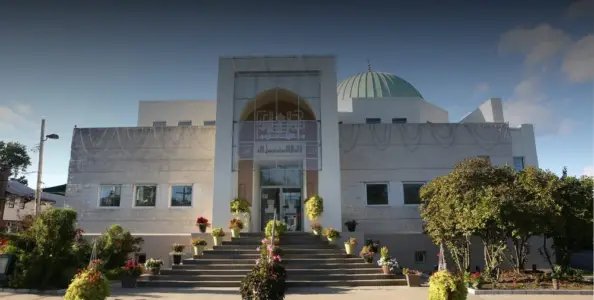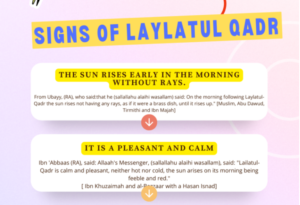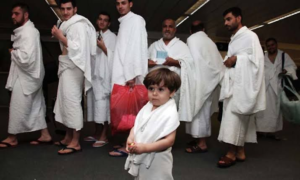The story of Islamic center of long Island Westbury
Once upon a time, nestled in the heart of Long Island, there stood a small house with a serene aura. It was the late 1980s when this humble abode would undergo a transformation that would shape the destiny of the Islamic community in Long Island. This house was about to become the beacon of faith, knowledge, and unity – the Islamic Center of Long Island (ICLI).
The story of ICLI began with a small group of devoted individuals who shared a common dream: to establish a place where their community could gather for Quranic instructions and spiritual nourishment. They envisioned a space where children and adults alike could deepen their understanding of Islam and strengthen their connection to Allah.
In those early days, the first Jumma, the Friday Congregational Prayer, was a modest affair, with just three adults gathering in that small house. However, the weekend school quickly gained momentum, drawing in 15 to 20 eager children hungry for knowledge and spiritual growth.
As the years passed, the need for a larger and more comprehensive center became evident. In 1989, the dream of expansion took root, and by 1991, it had blossomed into reality. The new structure added a prayer hall for both men and women, instructional classrooms, a library, and offices. This grand expansion spanned an impressive 10,000 square feet and cost a remarkable two million dollars, all thanks to the blessings of Allah, Alhamdulillah.
Exploring the rich history of 5 Mosque in Seattle Washington.

ICLI didn’t just limit itself to religious services; it aimed to cater to the diverse spiritual needs of its community members of all age groups. The center became a hub of activity, offering a vibrant and bustling Weekend School with nearly 400 students, ranging from preschoolers to 12th graders. There was an IC Kids program for the youngest learners, sisters’ Halaqa, adult Quranic education, and even a Hifz Program for those dedicated to memorizing the Quran.
The center extended its warmth to the community through various avenues, such as girls and boys basketball leagues, the Salaam group designed for recent reverts to Islam, interfaith seminars, matrimonial counseling, and assistance with funeral arrangements for Islamic burials.

But perhaps one of the most remarkable facets of ICLI was its commitment to interfaith dialogue and harmony. In a world filled with misconceptions and stereotypes about Islam and Muslims, ICLI stood as a steadfast force of resistance against Islamophobia. The center actively engaged in dispelling these misconceptions and promoting understanding among people of different faiths.
In October 2015, Dr. Faroque Khan, a founding member and a true interfaith visionary at ICLI, took a monumental step. He established the Interfaith Institute of the Islamic Center of Long Island. This institute was a testament to ICLI’s unwavering dedication to fostering understanding, respect, and cooperation among people of all faiths.
The Islamic Center of Long Island had come a long way from its humble beginnings in that small house. It had grown into a vibrant, welcoming, and enlightening community hub, embracing diversity and promoting unity. Its story was a testament to the power of faith, dedication, and the unifying force of love and understanding in a world often filled with division and prejudice.
Indeed, there are many Islamic centers around the world that started from humble beginnings, often as a single room or a small building. One such notable example is Darul Uloom Deoband.
Read: Istikhara prayer
Darul Uloom Deoband, located in the town of Deoband in the Saharanpur district of Uttar Pradesh, India, has a rich history that dates back to the late 19th century. It began as a modest institution with a single room dedicated to Islamic education and scholarship. Founded in 1866 by a group of prominent Islamic scholars led by Maulana Muhammad Qasim Nanotawi, it was established with the aim of preserving and promoting traditional Islamic learning in the Indian subcontinent.
In its early days, Darul Uloom Deoband primarily focused on providing Islamic education to local students, emphasizing the study of Islamic jurisprudence, theology, and the Quran. The institution’s commitment to upholding the values of Islamic scholarship and piety attracted students and scholars from various parts of India.
Over time, Darul Uloom Deoband grew in stature and reputation. Its influence extended beyond the local community, and it became a center for the propagation of Islamic knowledge and the training of scholars and religious leaders. The one-room building expanded, and additional facilities were added to accommodate the growing number of students.
Today, Darul Uloom Deoband is one of the most prestigious Islamic seminaries in the world. It has a sprawling campus with multiple buildings, libraries, lecture halls, and residential quarters for students and faculty. The institution continues to play a vital role in Islamic education, producing scholars and graduates who contribute to the promotion of Islamic teachings and values not only in India but also globally.
The story of these Islamic Centers serves as an inspiring example of how a small, one-room building dedicated to Islamic education can evolve into a renowned center of learning and religious scholarship, leaving a lasting impact on the Muslim community and beyond.
Discover more from Islam Hashtag
Subscribe to get the latest posts sent to your email.




